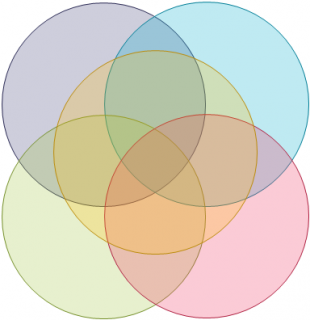Growing Beyond Numbers: Five Types of Growth
By Tandi Rogers

I like frameworks to help me hang ideas on and organize my thinking. For years I’ve used the growth categories from Ted Buckle and popularized by Loren Mead in his book More Than Numbers: the Way Churches Grow (the words are changed a bit.)
I’ve added Associational Growth, because our interconnection is important as Unitarian Universalists.
Rather than definitions, I’ll introduce the categories with some questions. I invite you suggest some of your own questions for these categories in the comment section. What else would you add?
Organizational Maturity
- What is your congregation’s purpose for existence? How do you know? How is your purpose expressed?
- How does your governance and organizational structures fit your size and serve your purpose? How do you understand governance and organization to be different?
- How are your policies community-owned and responsive to your purpose and the people you want to be?
- How does your building or meeting space serve your mission (rather than be your mission)?
- What is your pathway to leadership and service? How is this communicated?
Spiritual Vitality
- How does your congregation understand it to be a religious community? How is this reflected in all aspects of congregational life, including worship? How is Sunday morning carried into the rest of the week?
- How do you develop spiritual maturity?
- In what ways do you help people reflect on how Unitarian Universalism intersects and enriches their lives?
- How is your hospitality an expression of Unitarian Universalist theology?
- How do you understand your budget to be a religious document?
- How does your community care for each other? What mechanisms are in place to do that thoroughly, joyfully, lovingly and well?
- What rituals, hymns, prayers, and sacred text to you teach to hold people in sorrow, stress, and celebration?
- What ways have you created to help individuals make sense of leadership, service, and justice making as an expression of Unitarian Universalism and also as a tool faith formation?
Faith In Action
- How does your wider community know you are Unitarian Universalist by your actions?
- How does your faith inform how you create justice, love, and beauty in the world? How are you transformed in that creating? How is the world transformed
- What is your congregation’s missional footprint in the world?
- A generation from now what do you want your story to be about how you embodied our faith tradition?
Associational
- How do you show up for other Unitarian Universalist congregations? Other communities of faith?
- In the wider community, with whom are you in relationship?
- How do you pool resources with other Unitarian Universalist congregations to learn, grow, and create something larger than us?
Numerical Indicators
- How do you count whom you are serving?
- How do the numbers you collect help you break down assumptions? Ask better questions?
- How will we know when we’ve taken a step toward Beloved Community and our vision?
- How do you measure your impact? Effectiveness? Success? And how do you celebrate your progress?
I don’t use these categories as silos. Quite the opposite. They overlap and talk to each other. Think of a big Venn Diagram with four circles. The inside circle is for your congregation’s mission and purpose. The numerical indicators dance throughout the circles quantitatively documenting impact and checking assumptions, thus allowing for intentional shifts.
Few thriving religious communities lead with numerical growth as a goal. They lead with doing church well. They faithfully pay attention to the first four categories. Numerical growth is one outcome.
Try this framework out and let me know what you think. And keep adding questions below. How does your mission, ministry and impact reflect in each of the categories?